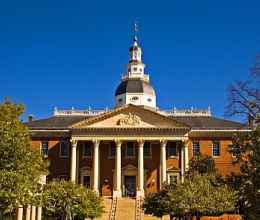
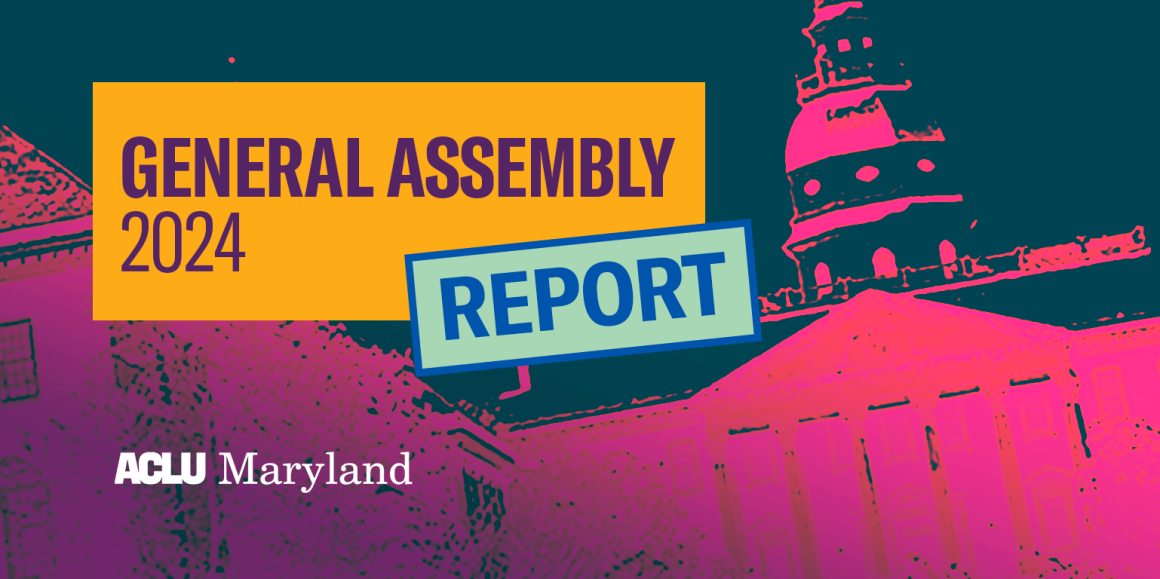
Get more information on ACLU of Maryland's priorities for the 2024 General Assembly, including videos and fact sheets.
LEGISLATION
PRIORITY BILLS
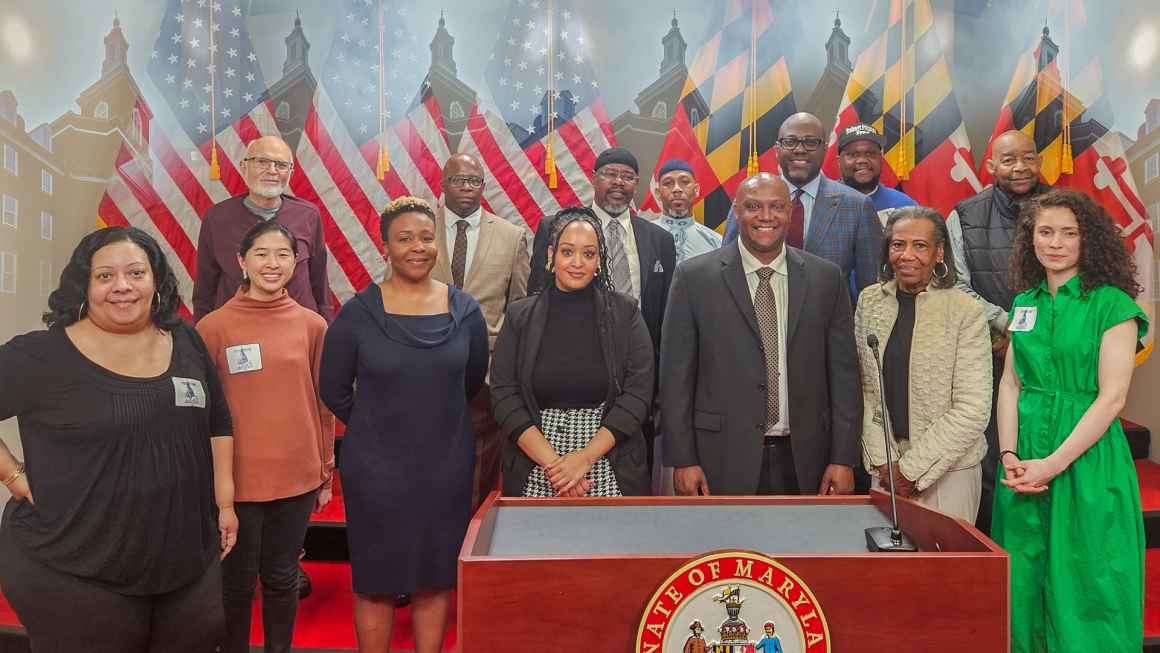
LEGAL JUSTICE
Pass the Maryland Second Look Act – PROGRESS/DISAPPOINTMENT
Maryland incarcerates the highest percentage of Black people in the country, at 72 percent of our prison population, which is more than twice the national average. The only way to reduce existing racial disparities is to create more meaningful avenues for release for those who have demonstrated their rehabilitation. This is why this session, the ACLU, alongside the Maryland Second Look Coalition supported the passage of the Maryland Second Look Act (SB 123/HB 724), which sought to address Maryland’s extreme race disparities and advance public safety by allowing people serving extreme sentences who have served at least 20 years the opportunity to petition the court to modify or reduce their sentence based on their demonstrated rehabilitation.
The bill received a lot of support from community members, family members, those who are currently and formerly incarcerated, faith leaders, defense attorneys, and even the Prince George’s County and Baltimore City State’s Attorney.
The bill passed the Senate and passed out of the House Judiciary Committee, but unfortunately, it was heavily amended and gutted by the Chairmen of the House Judiciary Committee before it could officially pass third reader in the House. Even though the bill did not pass, we are proud that more legislators and Marylanders are educated on Second Look than ever before — and support is growing! We plan to build on that momentum for the next legislative session.
Eliminate Criminal Penalties for Marijuana – DISAPPOINTMENT
This session, the ACLU of Maryland worked with our partners to support HB 441/SB 619 which would eliminate criminal penalties for certain marijuana-related offenses. Instead, the bill sought to designate possession of more than the personal-use amount and possession with intent to distribute as civil offenses, subject to citations and civil fines, rather than imprisonment.
Although in 2022 Maryland voters overwhelmingly approved ending the criminalization of the recreational use of marijuana, under the new law, marijuana-related offenses, such as possession with intent to distribute and possession of more than the civil-use amount, can still result in a misdemeanor conviction. Without eliminating these penalties, Black people will be vulnerable to existing arrest patterns, which will result in Black people being saddled with criminal penalties despite legalization. Unfortunately, HB 441/SB 619 were never brought for a vote in the House Judiciary Committee or Senate Judicial Proceedings Committee.
Remove the Governor from Medical Parole – DISAPPOINTMENT
In 2021, the General Assembly at long last removed the governor from the parole process. Before the passage of that bill, Maryland was one of only three states that allowed the governor to overturn parole decisions for people serving life sentences with the possibility of parole. However, due to a bill drafting error, the bill that passed and has since been enacted excludes medical parole, making medical parole the only type of parole that would require action by the governor. The ACLU of Maryland and partners worked to remedy this error for the third year by supporting a technical fix bill, SB 132/HB 185.
The Senate Judicial Proceedings Committee brought SB 132 up for a vote promptly, passing a clean bill out of Committee with a favorable report. The bill then passed out of the Senate without any harmful amendments. However, the bill was never given a post-crossover hearing in the House Judiciary Committee and never brought up for a vote. We are disappointed that this technical fix bill, once again, died in the House Judiciary Committee. We will reintroduce this bill again next session and, during the interim, continue to educate legislators on why waiting for medical parole should not be a death sentence.
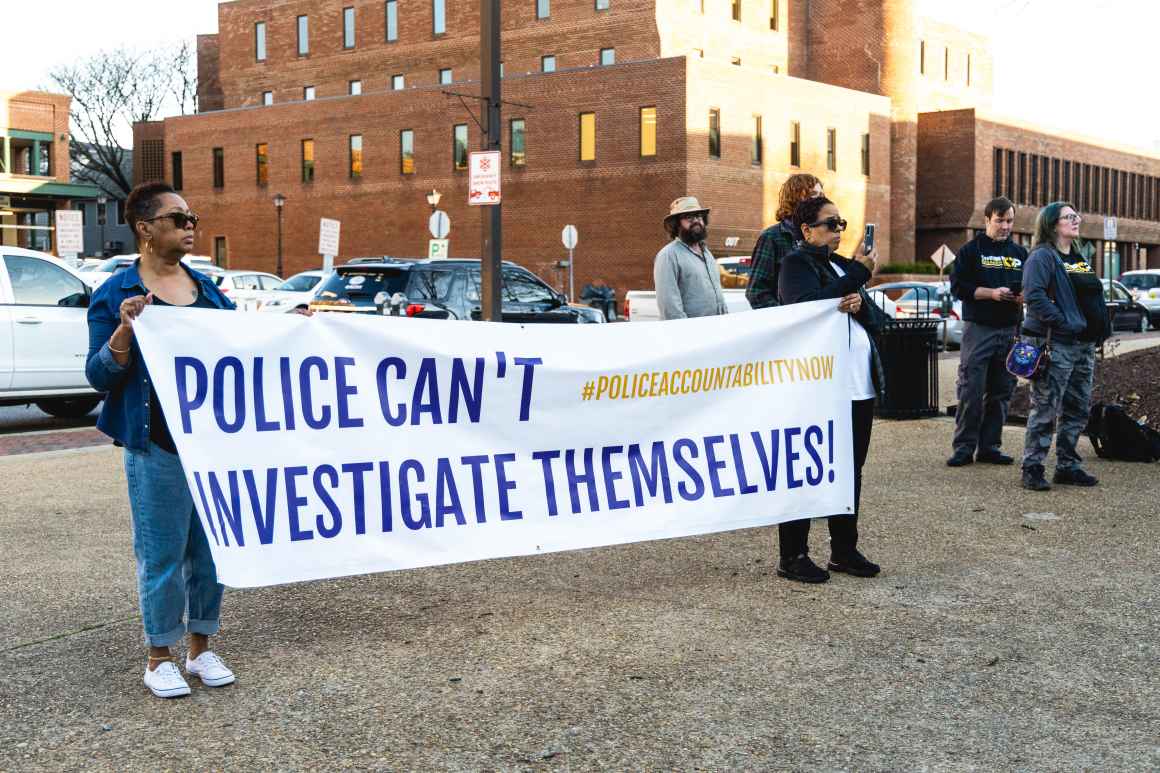
GOVERNMENT ACCOUNTABILITY
Ensure Independent Investigatory Powers for Police Accountability Boards – DISAPPOINTMENT
This session the ACLU of Maryland worked with the Maryland Coalition for Justice and Police Accountability to support SB 621/HB 533, which would explicitly allow local jurisdictions to grant their Police Accountability Boards (PAB) power to conduct independent investigations and issue subpoenas. The Maryland Police Accountability Act of 2021 directed all counties and Baltimore City to establish a PAB and Administrative Charging Committee (ACC). However, no PABs in Maryland currently have these critical oversight powers because the Fraternal Order of Police undermined local support by improper claims about local governing authority under the Maryland Police Accountability Act.
Unfortunately, despite its importance, strong community support, and research showing that independent investigatory and subpoena powers are critical functions of a community oversight board, SB 621/HB 533 did not receive a vote or advance in the House or Senate. We are disappointed that a simple, clarifying bill such as SB 621/HB 533 failed to move this session. But we will continue to work with the Maryland Coalition for Justice and Police Accountability to pass the bill next year.
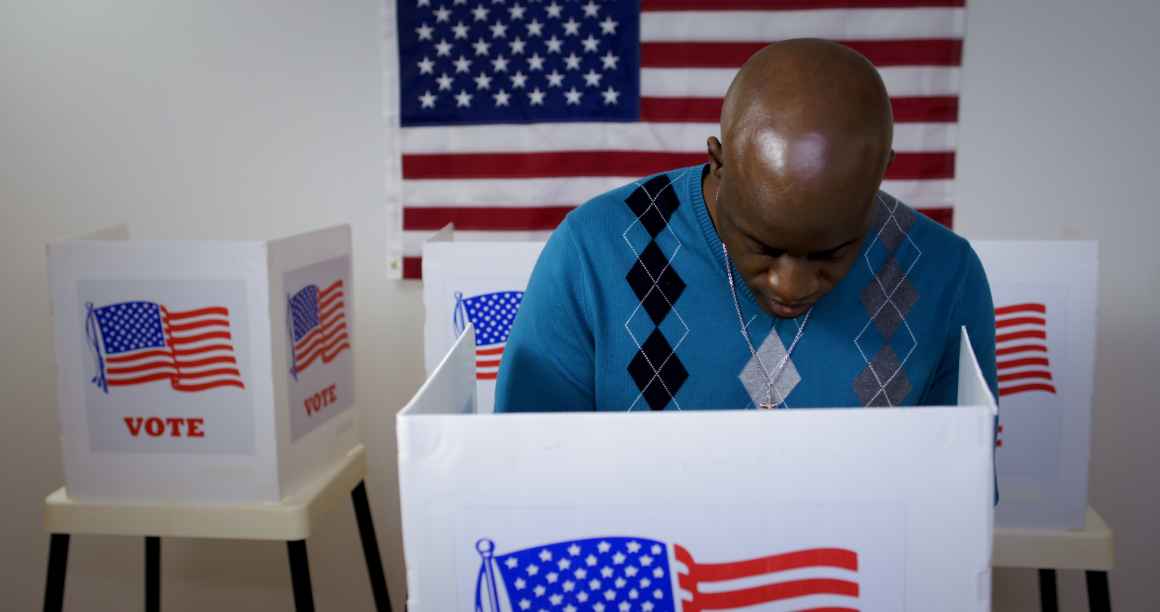
VOTING RIGHTS
Pass a Voting Rights Act in Maryland – DISAPPOINTMENT
This session the Maryland Voting Rights Act (MDVRA) was heard in both the House Ways and Means Committee and the Senate Education, Energy, and the Environment Committee, but was not put on a voting list in either body. Even so, the MDVRA bill received significantly more engagement from committee members in both chambers than it did during the 2023 legislative session and has subsequently been put on the radar of both the House and Senate leadership.
The MDVRA would institute preclearance, prohibit vote denial and dilution, prohibit voter intimidation, and broaden language access materials for voters across the state. A part of the challenge of passing the Maryland Voting Rights Act is the misunderstanding that Maryland is not the kind of state that needs a Voting Rights Act – that our more progressive policies and progressive reputation, as well as a perceived lack of voting discrimination cases/instances within the state, insulate us. In order to push back on this misleading narrative, the ACLU of Maryland and our partners will continue to educate legislators on the voting rights abuses that are occurring across the state in order to emphasize the need for this bill in Maryland.
OTHER CRITICAL LEGISLATION
In addition to the above legislative priorities, the ACLU of Maryland also dedicated time, energy, and resources to defeat bills that sought to roll back reforms made to the legal justice system for children in 2022.
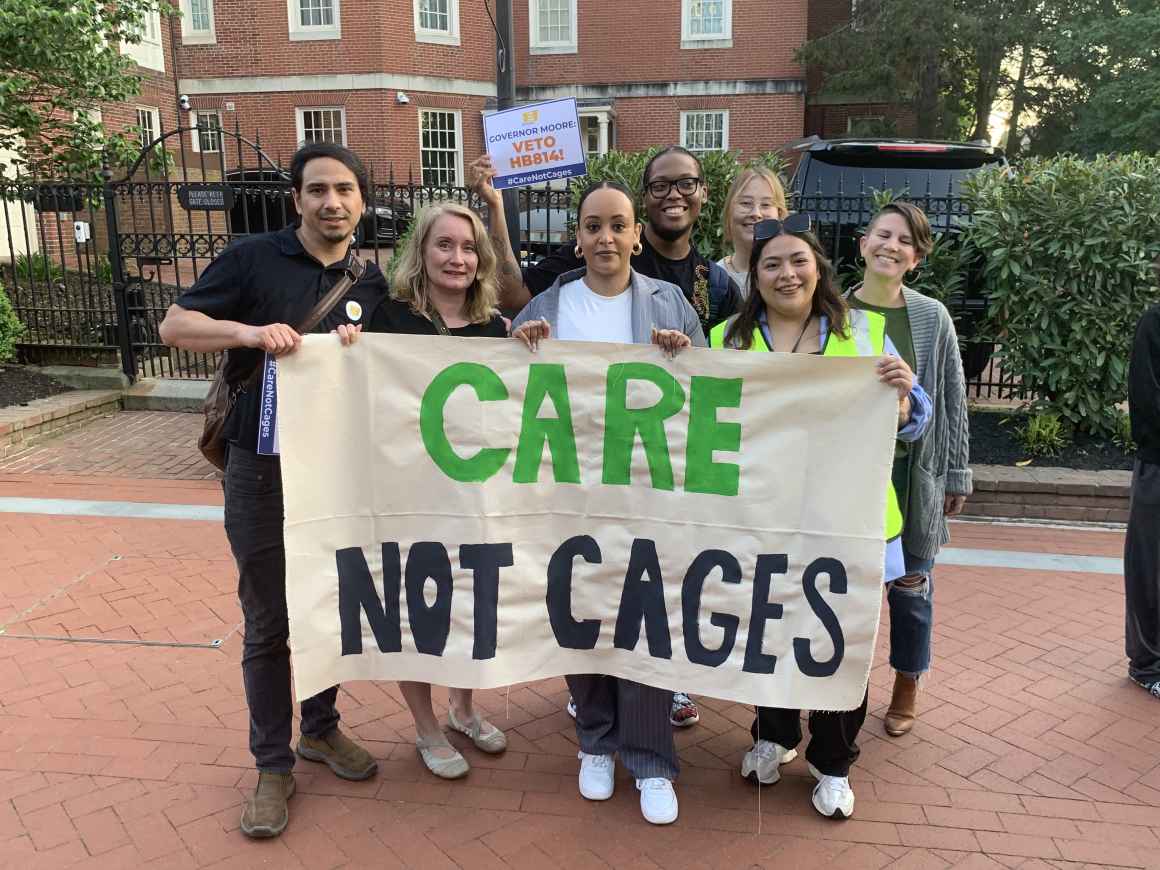
LEGAL JUSTICE
Juvenile Injustice Bill to Give Cages Not Care to Black Children (SB 744/ HB 814) – DISAPPOINTMENT
This year, amidst continued pressure from right-wing media and false narratives of child-led crime surges, Democratic leadership introduced a bill to “address” various perceived deficiencies they identified within the landscape of crime by children in Maryland. Although presented as a reasonable approach to remedy such deficiencies, the bill, throughout its various iterations, actually would not solve the root causes of crime in our communities and among children.
This bill was not rooted in evidence-based best practices nor data showing the need for this type of approach. It was clear, through comments made by General Assembly leadership, that leadership aimed to solve a “crime perception problem,” rather than a real problem, supported by data. Prior to and throughout session, the ACLU worked with coalition partners to push back against this bill. Drawing on expert recommendations, research, data, and best practices, we worked to dismantle the narrative and suggest specific alternatives to various provisions in the bill.
The bills, HB 814/SB 744, were introduced and quickly received hearings in the House Judiciary Committee and Senate Judicial Proceedings Committee, respectively. Advocates showed up in numbers to voice their concerns. Throughout session, we recommended scrapping the bill, aside from the provision creating an oversight Commission to examine current issues in the youth legal system. Despite this opposition, the bills were voted out favorable with numerous amendments in both Committees. As passed, this bill expands incarceration of elementary school aged children, limits opportunities for diversion, expands pre-court detention for misdemeanor offenses, unnecessarily extends probation periods and heightens consequences for childhood misbehavior. While we are incredibly disappointed, we will continue to defend children’s rights and work to build a system that is truly responsive to their needs.
Criminal Procedure - Stops and Searches - Cannabis Odor and Admission of Evidence (Drug-Free Roadways Act of 2024) (HB 320/ SB 396) – SUCCESS
Last year, following legalization of recreational marijuana in Maryland, the ACLU of Maryland worked to pass HB 1071 (Criminal Law and Procedure – Cannabis – Fines for Smoking in Public, Stops, and Searches) which prohibits police from stopping and searching a person or their vehicle based on the smell of marijuana alone. Additionally, the bill ensured that evidence obtained in an illegal search could not be used against someone in a legal proceeding. Prior to passage of HB 1071, police had been granted the authority to conduct pretextual searches based on dubious claims of marijuana odor. These claims had been routinely used to infringe on people’s Fourth Amendment rights and justify racial profiling.
This year, HB 320/SB396 was introduced to rollback this landmark achievement by eliminating protections against vehicle searches. We pushed back against these bills through opposition testimony, and they were never brought up for a vote. We will continue to defend HB 1071 against any future attempts to roll back the law.
Truancy Court Expansion (SB 865) – SUCCESS
The effort to expand truancy courts throughout Maryland was defeated for the third straight year. Aligned with the research, the ACLU of Maryland advocated for an unfavorable report on this bill, as expanding the legal interactions between children, families, and the court system usually leads to more future court visits and legal entanglement. We continue to urge the legislature to dig into the large body of research on how schools can best increase attendance and reduce absenteeism and truancy.
Criminal Procedure – District Court Commissioners and False Statements (HB 1183) – DISAPPOINTMENT
This session, the ACLU of Maryland supported HB 1183, which would limit the issuance of arrest warrants to those generated in response to a statement of charges application solely by a police officer or states attorney. The bill sought to establish necessary safeguards and insulate the process from those individuals looking to weaponize the criminal legal system against other civilians.
Since a thorough investigation is not a standard part of the process for consideration of citizen-initiated applications for statement of charges and there is little to no deterrent for making false statements, we offered a friendly amendment that would remove the increase in potential incarceration from 6 months to 3 years, recognizing that an increase in penalties is not proven to dissuade criminal conduct. Although the bill received strong support in ensuring that accusations of criminal conduct are properly vetted through law enforcement investigatory procedures, HB 1183 failed to move out of the House Judiciary Committee before crossover.
Criminal Procedure – Probation, Parole, and Pretrial Release (HB 474) – DISAPPOINTMENT
This session, the ACLU of Maryland supported HB 474, which would prevent a court from denying pretrial release and probation, as well as the Maryland Parole Commission from re-incarcerating, an individual who has violated parole on the sole basis of marijuana use or a urinalysis indicating marijuana use. With the legalization of recreational use of marijuana this bill would allow Maryland to cut incarceration costs, maintain public safety, and enable returning Marylanders to continue their re-entry into society.
Unfortunately, despite its importance, tremendous community support, and being introduced in a prior legislative session, HB 474 did not receive a vote in the House Judiciary Committee. While we are disappointed that HB 474 failed to move this session, we will continue to work with our partners to pass the bill next year.
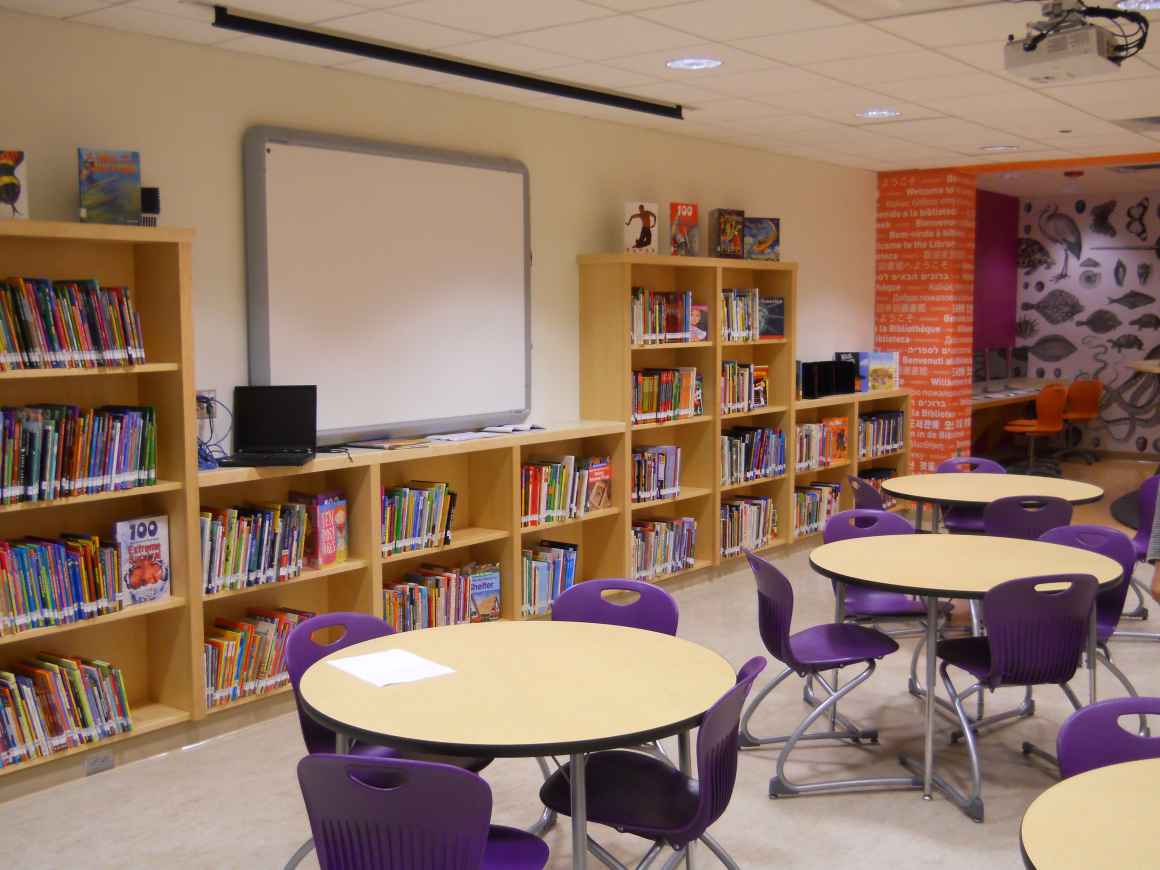
INDIVIDUAL AUTONOMY
Freedom to Read Act (HB 785/SB 738) – SUCCESS
The attack on public education and free speech in our schools is at an all-time high. Nearly 3,500 books were banned nationwide during the 2022-23 school year, which represents a 33 percent increase from the prior year. The vast majority of the books removed were written by or about members of the LBGTQ+ community and Black, Indigenous, and People of Color. The Freedom to Read Act establishes standards by which all public libraries, including library and media centers in public schools, must abide. The standards ensure that books cannot be removed based on ideological, partisan, or religious disapproval — or based on the origin, background, or views of an author. The bill also protects librarians and related staff from being terminated, disciplined, reassigned, or demoted for performing their job duties consistent with the standards. Public school systems will be required to develop their own policy and procedures to review objections to books and materials in school libraries, within the parameters of these new standards.
Prohibition on Forced Infant Separation Act (SB 71/HB 191) – PROGRESS
The ACLU of Maryland supported this bill to allow a pregnant woman classified to be in prerelease status to relocate to the prerelease unit for women throughout the duration of her pregnancy. It also would have allowed incarcerated women to reside in the prerelease unit for one year postpartum to care for their infants. Research shows that infants who are separated from their mothers after birth are likely to suffer from a number of lifelong consequences including higher rates of mental illness, substance abuse, social isolation, teenage pregnancy, learning disabilities, financial hardship, and involvement with the legal system. This is the third year this bill has been introduced, but it is the first year the bill passed out of the Senate.
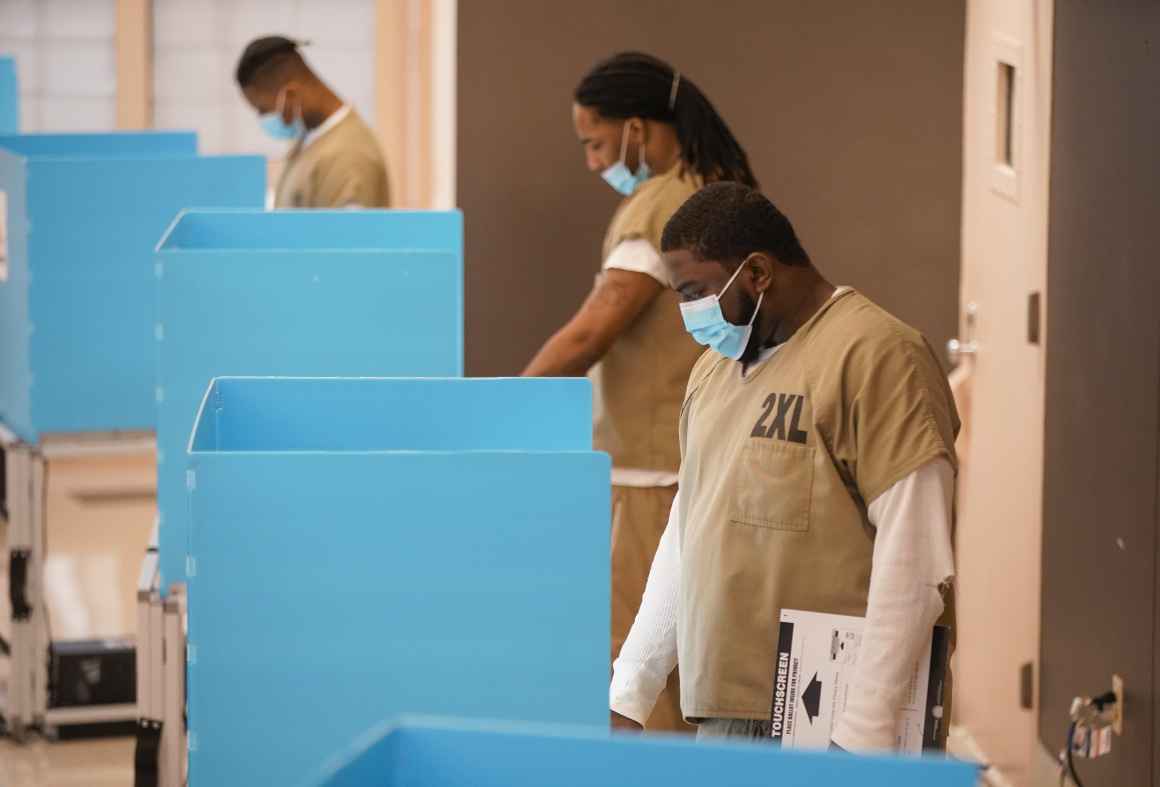
VOTING RIGHTS
Election Law – Automatic Voter Registration – State Correctional Facilities (HB 627) – PROGRESS
The legislative session the ACLU of Maryland supported HB 627, which sought to make State Correctional Facilities automatic voter registration centers, helping re-enfranchise a historically disenfranchised population of Maryland voters. While the bill did not make it across the finish line this session, significant progress was made. HB 627 passed out of the Ways and Means Committee and the full House. However, it only received a hearing in the Senate Education, Energy, and Environment committee and was not put on a vote list.
Voting Rights for All Act (HB 1022) – DISAPPOINTMENT
Voter disenfranchisement laws were intentionally designed, under our historical white supremacist system, to block the political power of Black and Brown citizens. HB 1022 sought to repeal the State law provision that establishes that an individual is not qualified to be a registered voter if the individual has been convicted of a felony and is currently serving a court-ordered sentence of imprisonment for the conviction. The bill had a great hearing in the House but unfortunately, was not put on a voting list. The ACLU of Maryland will continue to work with our coalition partners to educate legislators on their ability, and duty, to affirm that voting in Maryland is a right, not a privilege.

IMMIGRANTS’ RIGHTS
Access to Care Act (HB 728/SB 705) – SUCCESS
This session, the ACLU of Maryland worked alongside our partners at CASA to support the passage of the Access to Care Act. The federal Affordable Care Act (ACA) has ensured that tens of millions of uninsured citizens can purchase health insurance. However, undocumented residents in Maryland have been ineligible for the program due to their status. HB 728/SB 705 sought to expand the Maryland Health Benefit Exchange (MHBE) to undocumented individuals and families. The MHBE administers the state's health insurance marketplace for the ACA and helps Marylanders navigate the complicated health insurance industry and identify the best healthcare plan options to meet their clients' needs. An estimated 250,000 people will now have access to this service. A big shoutout to CASA for relentlessly leading this effort!
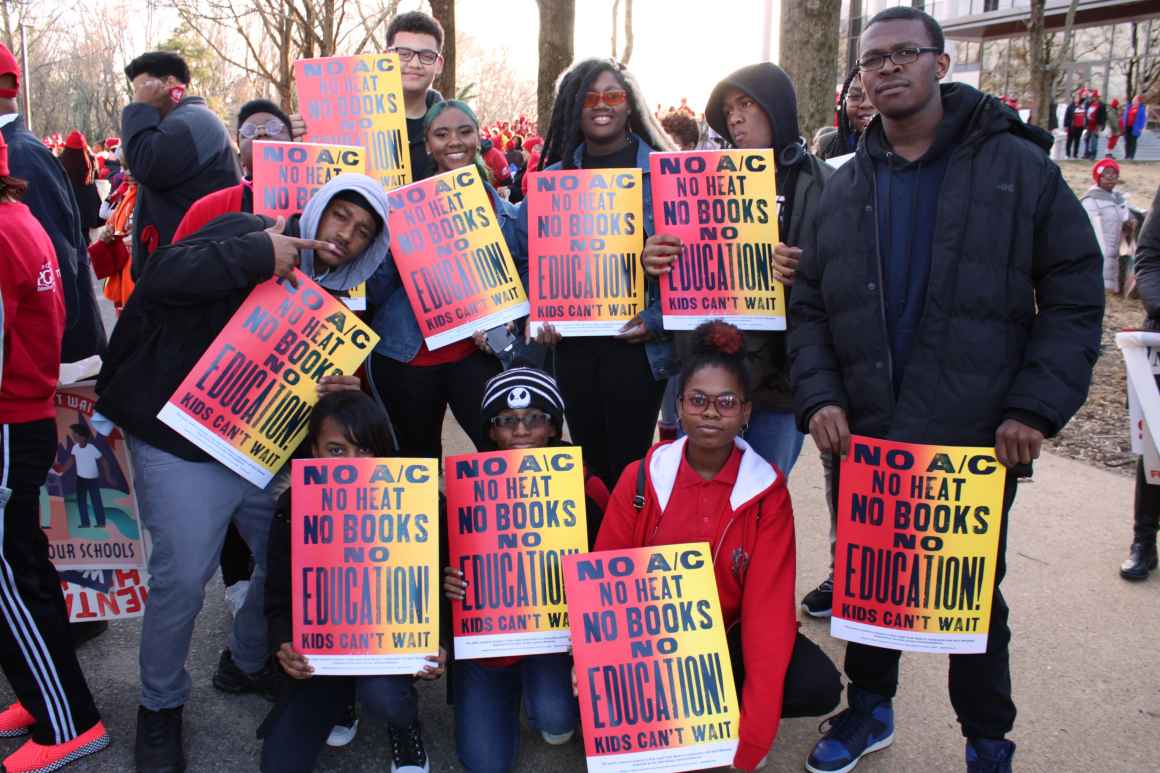
RIGHT TO EDUCATION
Funding the Right to Education in PreK-12
The $4 billion Blueprint for Maryland's Future — the state's landmark education initiative that passed in 2021 — is funded at the level required by law for school year 2024-25 (Fiscal Year 2025). The legislature adopted Governor Moore's budget for education, which total approximately $9.2 billion for public schools statewide — an increase of $461 million or 5.3 percent from the prior year. Most of the increased funding will go towards the ongoing effort to ramp up staffing and services for underserved populations including students from households with low income, English learners, and students that require special education, as called for in the Blueprint law.
Restorative Practices Schools (HB 1257/SB 917) – PROGRESS
For more than a decade, the ACLU of Maryland has been working to promote restorative approaches in schools to address the disparities seen in suspensions that disproportionately impact Black and Brown students, and students with disabilities. Restorative approaches to discipline require school staff to help students understand the impact of their actions, learn strategies for coping with their feelings, and develop stronger and healthier relationships with their teachers and peers. While Maryland is still at the beginning of implementing these programs statewide, the outcomes have been overwhelmingly positive in certain Baltimore City schools, where the practice has been implemented over the past decade.
This session, HB 1257 passed in the House but was stalled in the Senate. Questions about the complex nature of implementing restorative approaches in every Maryland public school arose during the session, as did the capacity issues within the Maryland State Department of Education. However, it is clear there is widespread support for this initiative among government officials and advocates. The ACLU is excited to collaborate with our allies and grassroots communities statewide this year so that the bill will be in a better position for the next legislative session.
Commission on History, Culture, and Civics in Education (HB 50) – PROGRESS
Appearing for the fourth consecutive year, HB 50 would expand the curriculum in Maryland's public schools by including contributions from a myriad of racial, ethnic, and marginalized populations that are not equitably represented in classroom lessons. The bill would have established a commission of experts to develop new curriculum content that includes the contributions, lived experiences, and histories of Black Americans, Indigenous peoples, Asian Americans, Latine/x Americans, the LGBTQ+ community, religious minorities, the differently abled community, and women. The commission would make recommendations to the Maryland State Board of Education (MSDE) for the subjects of history, social studies, and civics. The bill was not brought up for a vote, as legislators expressed the General Assembly's informal position of relegating the responsibility of curriculum development to MSDE and local districts. However, Dr. Carey Wright, now Superintendent of Maryland Schools, announced her intention to establish a workgroup to review curriculum and said she agreed with expanding the curriculum to be more inclusive.
Credit for All Language Learner Act (CALL Act) (HB 569/SB 395) – SUCCESS
English Language Learners, now referred to as Multilingual Learners (ML), have not been awarded credit at community colleges for completing English language courses. In contrast, native English speakers have always earned credit for completing language courses (e.g. Spanish, Chinese). Studies have revealed that the longer students are in "remedial" courses, the less likely they are to complete an associate or bachelor’s degree. The CALL Act guarantees that ML will earn college credit for the English language courses they complete, and that these credits are transferable to any public institution of higher education in the State.